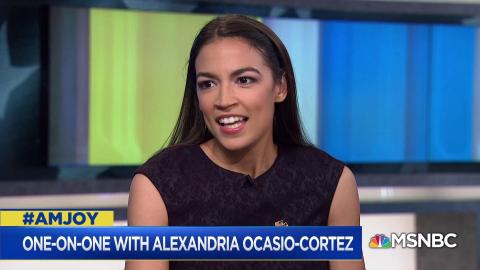A thrilling victory by a young insurgent candidate, Alexandria Ocasio-Cortez, against a 20-year incumbent and party boss, US Rep. Joseph Crowley, in the June 26 New York primary seems to be reverberating over state and national politics.
Pundits are posing the question of whether a national anti-establishment wave within Democratic Party politics is in the making. Many activists -- myself among them -- hope so, but don't shout too soon.
Remember how in 2004 a young upstart, newly-elected senator from Illinois burst onto the scene with a stirring speech at the Democratic National Convention? In 2008, he challenged the Clinton Democratic Party establishment, and with the support of independent voters who were able to participate in open primary/caucus states and the support of the African American and Hispanic communities and young people, Barack Obama became the Democratic Party nominee.
In the general election -- again with the support of communities of color, independents, and young voters -- he was elected president.
Once President Obama arrived in Washington D.C., he was consumed by the Democratic Party apparatus and leadership -- such as House Democratic Leader Nancy Pelosi, Senate Leader Harry Reid and others. He was no longer trying to shake up the political establishment; he became part of it.
President Obama did not advocate for any of the political reforms so vital to reforming the American political system such as nonpartisan elections, redistricting reform, or reforms to remove dark money from politics.
Ms. Ocasio-Cortez’s win and that of Stacey Abrams in Georgia, Mikie Sherrill in New Jersey, Kara Eastman in Nebraska and others have brought attention to new women candidates who have won Democratic Primaries around the country.
Many of these nominees like Ocasio-Cortez, are outsiders who ran against the Democratic Party establishment just like Obama. Certainly, such candidacies offer an opportunity to kick open the door for all who have been shut out by machine politics. These insurgent campaigns would be strengthened by forming alliances with voters outside of the parties, with independent, unaffiliated voters, and non-party voters.
When Ocasio-Cortez goes to Washington D.C. as a new congresswoman, (her victory in the general election is virtually certain due to the fact that she is the Democratic Party nominee in Democratic-dominated New York City) she will enter a Congress that is mired in partisan dysfunction and in which the needs of the poor seem never to be prioritized.
This is a Congress that has failed to pass comprehensive immigration reform no matter which party was in the majority. This is a Congress that does not represent the full political diversity of the American people. The majority of policymakers in Congress are still elected -- as was Ocasio-Cortez -- from gerrymandered districts and by partisan party primaries that exclude the growing numbers of independent voters and have very low voter turnout.
The state of our democracy is something that Americans across the political spectrum are concerned about. In a recent survey (a major bipartisan poll), a majority of Americans agreed with the statement that “the laws enacted by our national government these days mostly reflect what powerful special interests and their lobbyists want.” Only 17 % agreed that “The laws enacted by our government these days mostly reflect what the people want.”
Over the past year there has been a steep decline in the level of trust that Americans have in their government and congressional approval ratings remain around 17%. These surveys demonstrate that the American people know that the parties are fighting for their own special interests and not for the people.
The new insurgent women nominees can set an example and lead the way for real change in our democracy by reaching out beyond their own political party and to independent voters in their communities; by reaching out across party lines to people who are denied the right to vote in primary elections.
In order to make a transformative difference in American politics, there has to be a change in how politics works in America -- a change that moves politics from top-down to bottom-up. We need to create new ways to bring Americans of different political views together to restructure political life and dialogue.
Studies have found that independents are more comfortable interacting with both Democrats and Republicans than either Democrats or Republicans are with interacting with members of the other party. Independents are more open to differing viewpoints and may be key to bridging the political divide (Hedberg, Eric; Reilly, Thom; Daugherty, David and Garcia, Joseph (April 2017). “Voters, Media, and Social Networks” Morrison Institute for Public Policy. Arizona State University.).
What I find most inspiring about Ms. Ocasio-Cortez’s victory is how she won. She won by talking to people in her congressional district, poor and working, people of color, Hispanic, black and white. Congratulations to them all and may she continue even as an elected member of Congress to be independent, to oppose machine politics, and to reach out at the grassroots and include all. I urge her to reach out to other outsiders, and to independents of all colors.
